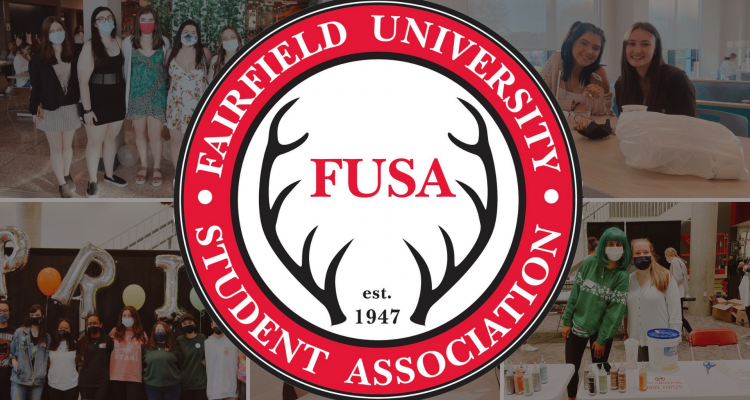Distribution of condoms, degree policies for double-major students and the confirmation of two Associate Justices to the FUSA Court dominated the discussion at the Fairfield University Student Association’s fourth General Senate Meeting, held on Wednesday, Nov. 3 in the Barone Campus Center.
The meeting started with Department of Public Safety Sergeant Byrd, who discussed new security policies with FUSA’s senators during the public comment section of the meeting.
At the beginning of the semester, anyone who wished to enter campus had to present their StagCard upon entry. Now, traffic will flow freely through all the gates, preventing the back-up of cars often seen during peak times, especially before classes.
The meeting then shifted into committee reports where the Chair of Academic Affairs Committee, Vincent Rotondo ‘23, discussed his meeting with University leadership regarding academic policies.
One issue of contention amongst faculty and administrators was the University’s longstanding policy of issuing a single diploma for double-major students, according to Rotondo.
Some other colleges in the area, such as the University of Connecticut, issue two separate diplomas for students who choose to have two majors. According to Rotondo, faculty members were in support of a change in policy because some students expected to receive two degrees upon graduation.
“There are some [faculty members] who are in support of [awarding two diplomas to double-major students] because in terms of how it’s been communicated in the past, students ask ‘Where’s my second diploma?’ and then they’re upset that they don’t have one,” said Rotondo. “It’s definitely a communication issue.”
He went on to explain that many other selective universities in the Northeast, including Fordham University and Boston College have a policy similar to Fairfield.
Rotondo also updated the senators about the proposed Bellarmine College Program, a two-year community college program designed to serve lower-income communities in the area.
While administrators and faculty intended to make a decision about the proposal, they ran out of time during the meeting, and chose to table discussion until their December meeting.
Next to report on his committee’s work was FUSA Senator Jack McGlinchy ‘24, chair of the community safety & relations committee. He reported on the information he got after meeting with Dean of Students, William Johnson, Ph.D., regarding the potential distribution of condoms on campus.
While McGlinchy expressed support for creating and passing a resolution in the FUSA Senate expressing support for the distribution of condoms, Speaker of the Senate Jack Stalzer ‘22 suggested that the Senate must take a delicate approach with these sensitive issues.
Stalzer brought attention to an inconsistency with the school’s handbook, which states that students have freedom of speech, while simultaneously prohibiting campus organizations like FUSA from distributing condoms.
Both McGlinchy and Stalzer agree that this prohibition is a restriction on their freedom of speech. In reference to this restriction, Stalzer said “our freedom of speech is restricted. That should make us angry.”
The University administration has rejected past attempts to increase access to condoms on campus. In a 2017 article published in the “Fairfield Citizen”, University administration said “We are Catholic Jesuits. We don’t hand out condoms on campus. It’s just not something that we as an institution choose to openly hand out on a college campus.”
The meeting ended with the confirmation of Dylan McDermott ‘25 and Caroline Cody ‘25 to the Associate Justice positions on the FUSA Court. As running the FUSA elections is a large part of the justices role, both nominees were asked how they would engage voters.
McDermott stated he wants to host more ‘meet the candidate’ events and utilize marketing to engage students. Cody seemed to agree and added that she wants to use social media and building advertisements to engage with voters.
Both were confirmed unanimously by the Senate, leaving two spots still open for associate justices.


Leave a Reply